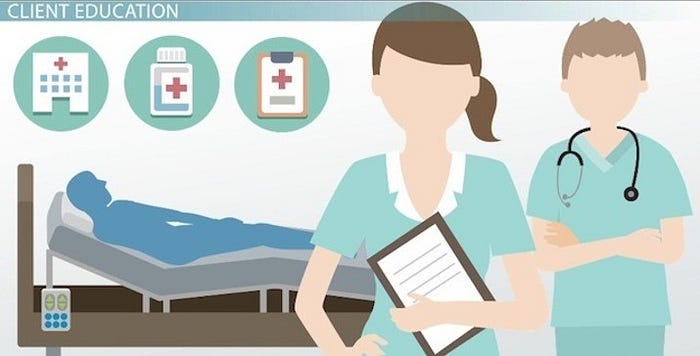The Crucial Role of Nurses in Lifelong Learning and Professional Development

Description:
Nursing is a dynamic and evolving field that requires continuous learning and professional development. In this blog post, we will explore the significance of lifelong learning for nurses, the impact it has on patient care, and strategies for nurses to enhance their knowledge and skills throughout their careers.
Section 1: Introduction
Nursing is a profession that demands a commitment to lifelong learning and professional development. As healthcare practices, technologies, and patient needs evolve, nurses must stay current with the latest advancements to deliver high-quality care. In this blog post, we will delve into the crucial role of nurses in lifelong learning and how it contributes to their personal growth and the well-being of their patients.
Section 2: Importance of Lifelong Learning in Nursing
Lifelong learning is essential for nurses to stay updated on best practices, evidence-based interventions, and emerging trends in healthcare. By continuously expanding their knowledge and skills, nurses can provide more effective care, improve patient outcomes, and adapt to the changing landscape of healthcare delivery.
Section 3: Impact of Lifelong Learning on Patient Care
The commitment to lifelong learning directly impacts the quality of patient care. Nurses who engage in ongoing education and professional development are better equipped to assess patient needs, make informed decisions, and implement evidence-based interventions. This results in improved patient safety, satisfaction, and overall health outcomes.
Section 4: Strategies for Lifelong Learning in Nursing
To enhance their professional development and embrace lifelong learning, nurses can implement the following strategies:
- Continuing Education: Participate in workshops, seminars, webinars, and conferences to stay abreast of industry advancements.
- Certification Programs: Pursue specialized certifications in areas of interest to deepen expertise and expand career opportunities.
- Mentorship: Seek guidance from experienced mentors to gain insights, feedback, and support in your professional journey.
- Journal Clubs: Join or start a journal club to discuss research findings, share knowledge, and engage in critical thinking.
- Self-Reflection: Regularly reflect on your practice, identify areas for improvement, and set goals for ongoing growth.
Section 5: The Evolving Role of Nurses in Healthcare
As healthcare systems become more complex and interconnected, the role of nurses is continuously evolving. Lifelong learning is essential for nurses to adapt to these changes, take on new responsibilities, and contribute effectively to interdisciplinary care teams. By embracing continuous learning, nurses can enhance their leadership skills, critical thinking abilities, and capacity for innovation.
Section 6: Empowering Nurses Through Lifelong Learning
Lifelong learning empowers nurses to take control of their professional development and career trajectory. By actively seeking out learning opportunities, engaging in reflective practice, and pursuing growth-oriented goals, nurses can cultivate a sense of autonomy, mastery, and purpose in their work. This self-directed approach to learning not only benefits individual nurses but also enriches the nursing profession as a whole.
Section 7: The Role of Lifelong Learning in Nursing Leadership
Effective nursing leadership requires a commitment to lifelong learning and continuous improvement. Nurse leaders who prioritize professional development set a positive example for their teams, foster a culture of learning within their organizations, and drive innovation in patient care delivery. By investing in their own growth and development, nurse leaders can inspire others to do the same and create a culture of excellence within their teams.
Section 8: Overcoming Challenges in Lifelong Learning
While lifelong learning offers numerous benefits for nurses, there are challenges that may hinder their educational pursuits. Common barriers include time constraints, financial limitations, and lack of institutional support. Nurses can overcome these challenges by prioritizing self-care, seeking out scholarship opportunities, advocating for workplace learning initiatives, and leveraging online resources for flexible learning options.
Our Advantages
Quality Work
Unlimited Revisions
Affordable Pricing
24/7 Support
Fast Delivery